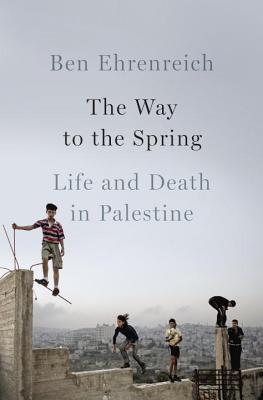What do you think?
Rate this book


448 pages, Hardcover
First published June 14, 2016
Nabi Saleh’s resistance was unarmed. Boys throwing stones were not armed. Soldiers were. That was the distinction that mattered.
Palestine has a way of enchanting people.
Perhaps it is the intoxicating proximity there of grief to joy and love to fury, the scale and the awful clarity of the injustice, people's resilience in the face of it.
[T]he prime purpose of the occupation was not to take land or push people from their homes. It did that too of course, and effectively, but overall, with its checkpoints and its walls and its prisons and its permits, it functioned as a giant humiliation machine, a complex and sophisticated mechanism for the production of human despair.
"There are military victories, where people destroy and conquer, but there is also the sweeter victory, where people try to create death and you create life out of that." -- Hani Amer
This was how it went, how it still goes. Anticipation, exultation, disappointment, heartbreak, anticipation again. Despair is not solid. Neither is joy.
There is no joy that is not also touched by sorrow, no grief that is not rendered sharper by the memory of bliss.
... successive Israeli governments of both the left and the right had, sometimes begrudgingly but nonetheless with overwhelming consistency, thrown their institutional and military weight behind the settlement enterprise. The most wild-eyed settlers worked then, as they continued to, as an advance guard for the state, and convenient scapegoat for its ambitions.
... the spokesman for the settlers' council put it succinctly: "For every drop our blood, they [the Palestinians] will pay in land."
It's our planet. We made it what it is. And by we I mean all of us--those of us who acted, and those who do not act. Hebron's realities are the same as those in the rest of Palestine, only boiled down under tremendous pressure until they have been reduced to a thick and noxious paste. And Palestine's realities are not different from our own. They are just starker, denser, more defined.